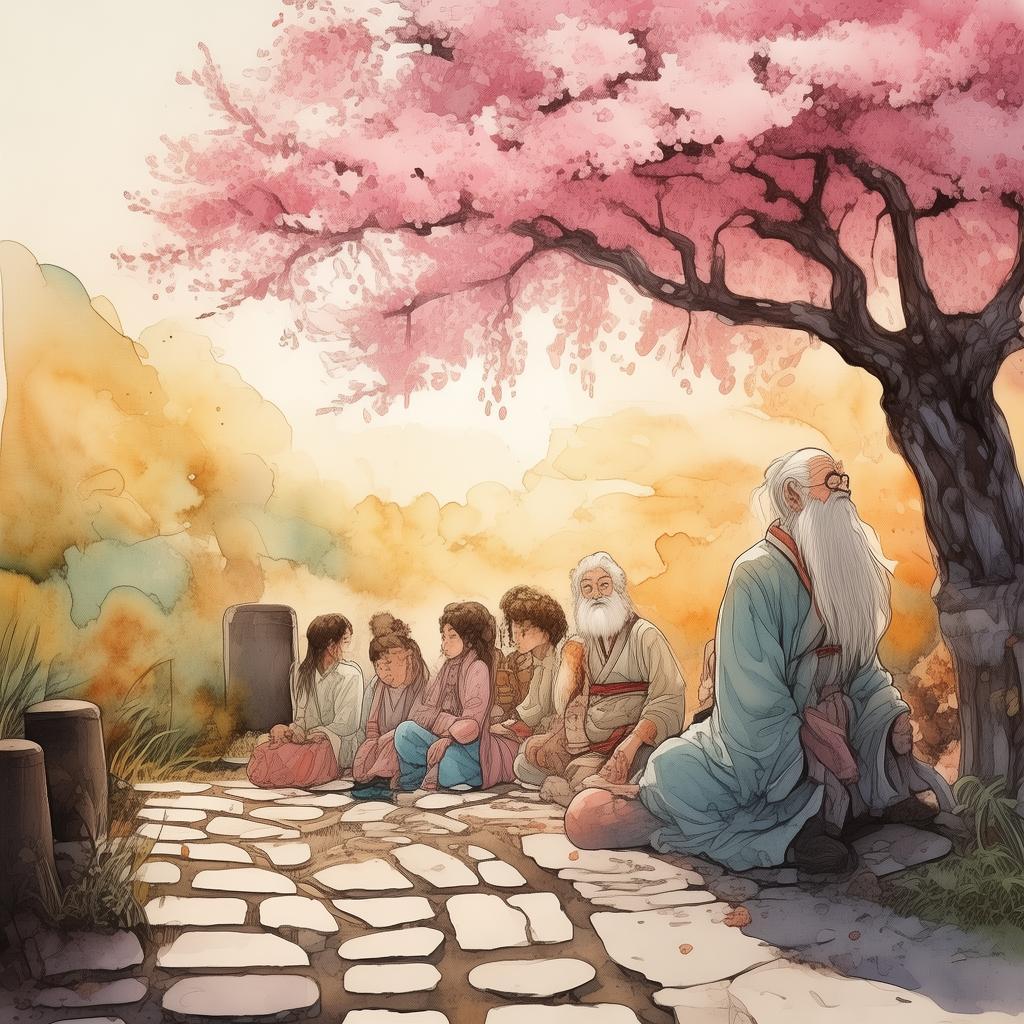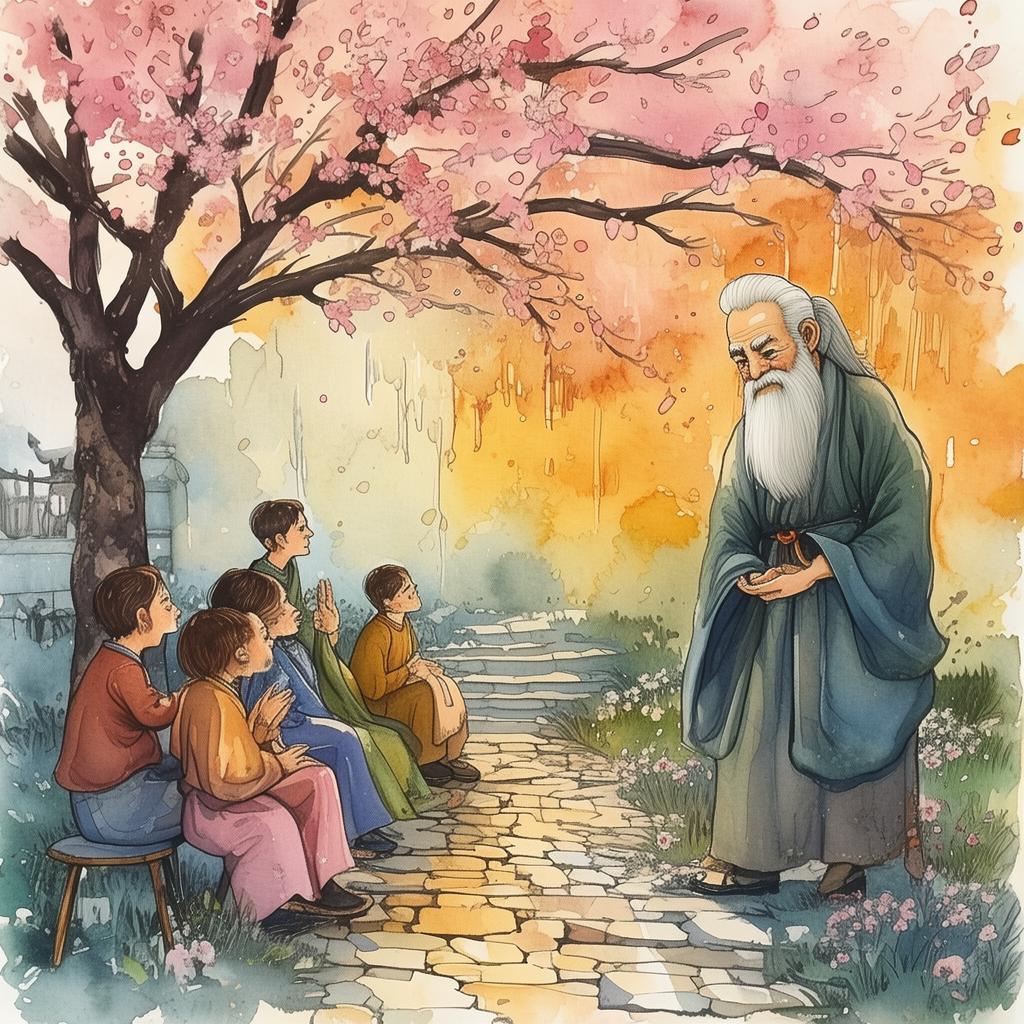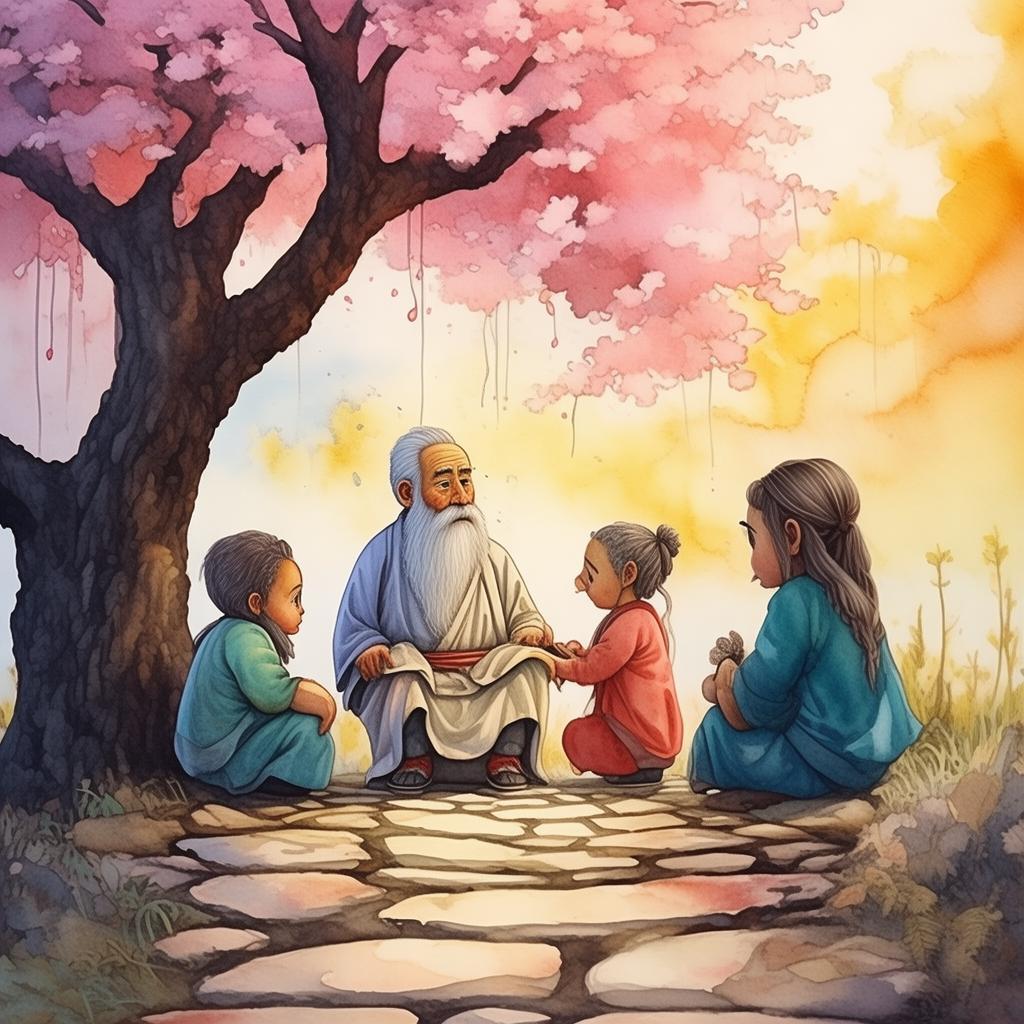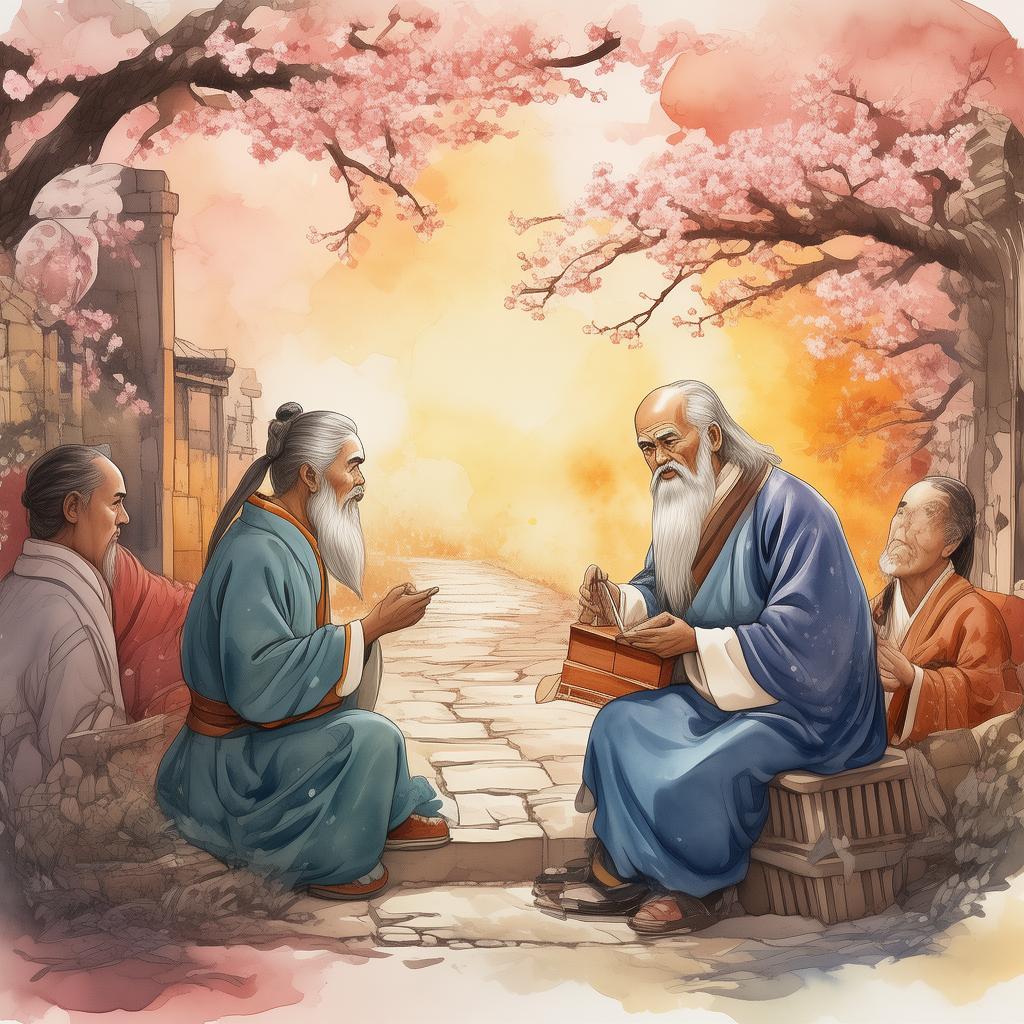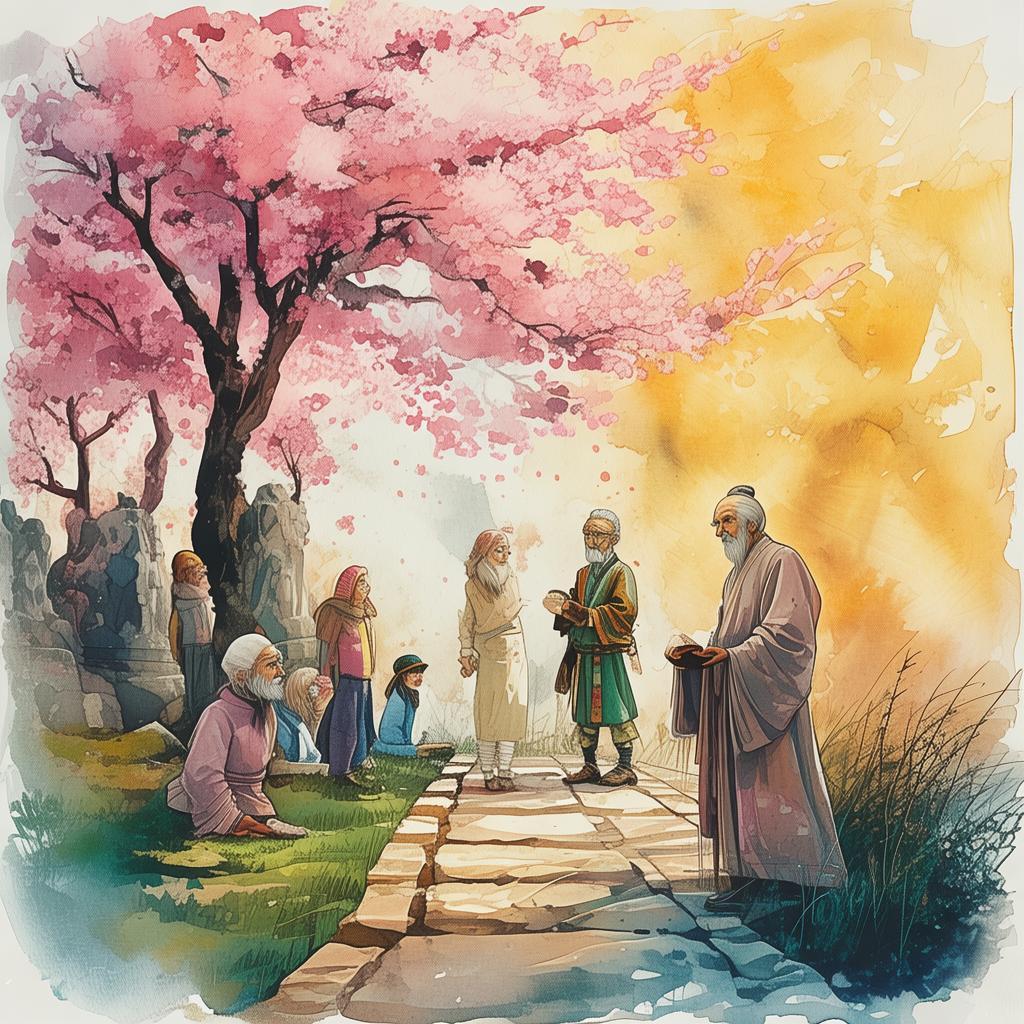Requiem of the Rolling Stones: A Sisyphus Symphony Tale
In the year 2147, amidst the sprawling metropolis of Neo-Lyria, the air was thick with the scent of progress and the echoes of a haunting symphony. The city was a marvel of futuristic architecture, a blend of towering skyscrapers and floating platforms that floated above the ground. Yet, beneath the shimmering surface, a darkness lay in wait.
Amidst this chaos, there lived a young man named Kael, a violinist with a soul as free as the wind. His life was simple, performing on the streets, his melodies weaving a tapestry of hope in the lives of those who listened. But Kael harbored a secret desire: to create a symphony that would echo the eternal struggle and the unyielding hope of humanity.
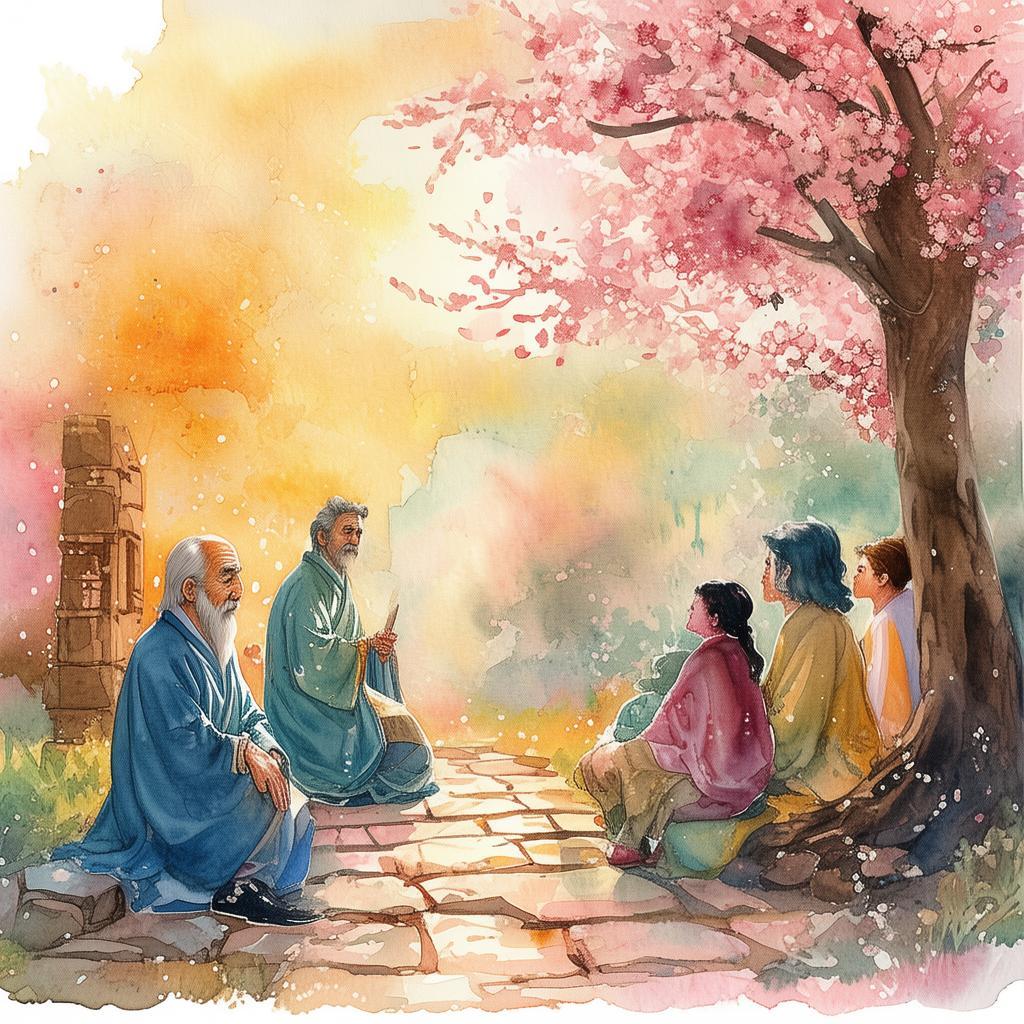
One fateful evening, while performing on the bustling streets, Kael stumbled upon an abandoned theater, its grand doors standing ajar, inviting him to enter. The air within was thick with the scent of aged wood and forgotten dreams. He pushed the door open, and a voice echoed through the halls, "Enter, and you shall be forever changed."
Intrigued, Kael stepped inside and found himself in the midst of a surreal spectacle. The theater was filled with performers, each one an embodiment of a character from a grand opera. The music was a haunting blend of traditional and futuristic sounds, a symphony that seemed to be alive and breathing.
The conductor, a figure draped in flowing robes, turned to Kael with a gaze that seemed to pierce through his very soul. "You have been chosen, Kael. You are to play the role of Sisyphus in our opera, 'The Sisyphus Symphony: A Futuristic Opera of Tragedy and Hope.'"
Kael's heart raced with a mix of fear and excitement. He had heard the tale of Sisyphus, the ancient king who was cursed to roll a massive boulder up a steep hill, only to watch it roll back down as he neared the top. The myth had always been a source of inspiration to him, a testament to the indomitable spirit of humanity.
As the opera began, Kael found himself transformed into Sisyphus. The stage was a vast landscape, a combination of natural beauty and futuristic technology that seemed to shift and change with each passing moment. The audience was captivated, their eyes fixed on Kael as he toiled under the weight of his eternal burden.
The opera was a journey through the mind of Sisyphus, his trials and tribulations, his moments of despair and hope. The music was a constant companion, sometimes a gentle lullaby, other times a relentless storm. Kael played his violin with every ounce of emotion he could muster, his fingers dancing across the strings as if to escape the gravity of his situation.
As the opera progressed, Kael began to feel a strange connection to the character. He saw himself in Sisyphus, in his relentless struggle against an impossible task. He began to see the world in a new light, the beauty in the midst of the chaos, the hope that always seemed just out of reach.
In the final act, the boulder rolled down the hill with an inevitability that seemed to be written in the stars. Kael, now fully transformed into Sisyphus, reached the bottom, only to see the boulder roll back up the hill, ready to start the cycle anew.
The audience gasped, their eyes filled with tears. But Kael did not despair. Instead, he looked up at the sky, his eyes filled with a newfound clarity. He began to play a new melody, a song of hope, a song that seemed to say that even in the face of impossible odds, one could find a way to move forward.
The music was so powerful that it seemed to reach into the very fabric of the universe, transforming the theater into a beacon of hope. The audience was spellbound, their hearts touched by the raw emotion of Kael's performance.
As the final note echoed through the hall, Kael collapsed onto the stage, exhausted but elated. The conductor approached him, a tear in his eye. "You have done it, Kael. You have given this opera its soul."
Kael opened his eyes and looked around, the audience now a sea of faces filled with wonder and gratitude. He had found his own path to salvation, not through the end of the cycle, but through the journey itself.
And so, as the curtain fell, the stage was filled with a new hope, a hope that seemed to echo the music that had just played. Kael, the young musician, had found his voice, and with it, the strength to carry on, to continue his struggle, to keep hope alive.
The Sisyphus Symphony had come to an end, but its message would resonate for eternity.
✨ Original Statement ✨
All articles published on this website (including but not limited to text, images, videos, and other content) are original or authorized for reposting and are protected by relevant laws. Without the explicit written permission of this website, no individual or organization may copy, modify, repost, or use the content for commercial purposes.
If you need to quote or cooperate, please contact this site for authorization. We reserve the right to pursue legal responsibility for any unauthorized use.
Hereby declared.
